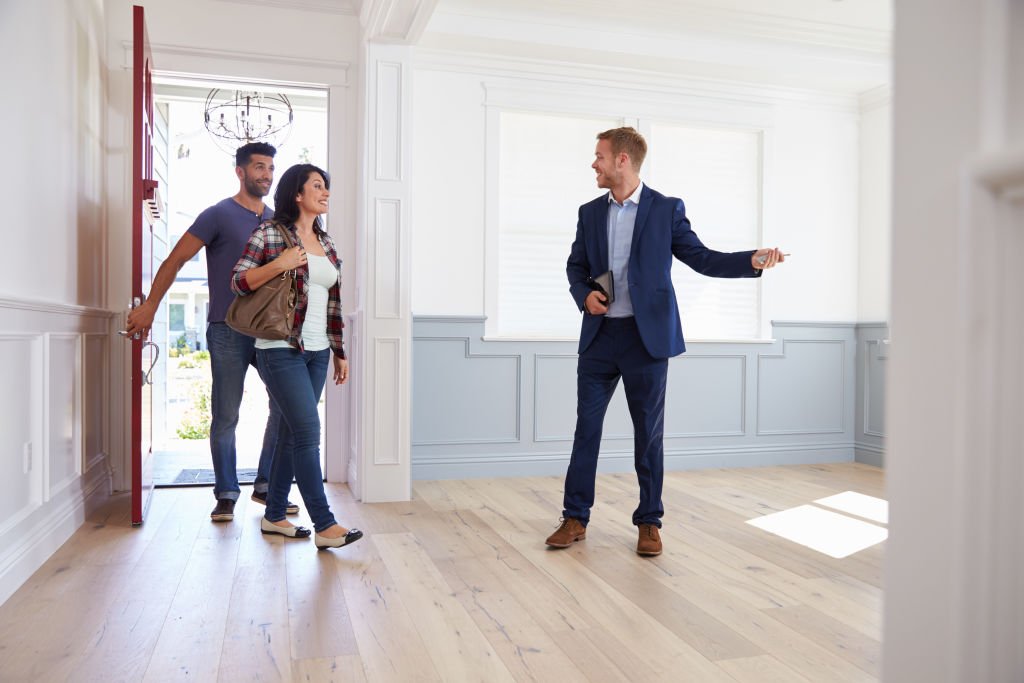Victorian government to reverse private real estate inspection ban after industry backlash
The Victorian government has backflipped on its property inspection ban following massive industry backlash and predictions of catastrophic consequences for the real estate industry.
On Thursday night, an update to the Consumer Affairs Victoria website revealed private inspections of occupied properties would be banned, which agents said would only let relatively few properties trade easily.
The announcement caused immediate widespread outrage from real estate agents and concern from sellers.
But REIV president Leah Calnan said on Monday morning the ban would be lifted via an official announcement from the government later in the day.
"[The REIV has had] a direct conversation with the Consumer Affair Minister Marlene Kairouz and are looking forward to a formal announcement sometime today which will confirm that agents will be able to resume conducting inspections in occupied residences if they comply with the strict restrictions on social distancing, one-on-one inspections and hygiene processes," she said.
The Consumer Affairs Victoria website was updated Monday morning to read: "Private inspections of an occupied/tenanted residential property are permitted to be organised."

Under the rules announced on Thursday, only vacant properties could be inspected.
The ban was based on advice from the chief health officer of Victoria.
Agents on the ground welcomed the news of the reversal.
Related: Victorian home sellers in limbo after ban on occupied property inspections due to coronavirus
Related: Victorian renters could face no-grounds evictions, homelessness after new property ban
Related: Inspections of occupied properties in Victoria banned during coronavirus
"I'm totally relieved, 100 per cent relieved," Biggin and Scott's Andrew Crotty said. "I have a couple of clients who need to sell and I had to tell them on Friday that they can't.
"I'm relieved and thankful they've seen the sense of it."
Ms Calnan said the backflip showed the government was willing to listen to the industry about the efforts they were taking to be compliant, but the scare over the weekend could prompt agents to be even more careful.
"They may not fully understand that agents can practically perform their duties and still be compliant with all of the government's directions," she said. "Maybe as agents return to their work on Tuesday, we'd encourage them to review and continue to review their processes to make sure they're abiding by their strict requirements."
Ms Calnan said she didn't understand why the ban needed to be introduced at all.
"No, we don't have any true understanding of why the directions were altered to prohibit private inspections," she said.
A spokeswoman for the government said essential sales of properties could go ahead, including the necessary professional inspections provided everyone was following social distancing and hygiene rules.
"Inspections of properties are allowed, as long as it's through a private appointment," she said.
Nelson Alexander director Arch Staver said the reversal had saved thousands of jobs, because the industry would have ground to a halt.
"All the members [of the REIV] wanted to know how we could continue to function and we just couldn't," he said. "A number of staff members would have been laid off."
Marshall White director John Bongiorno agreed.
"It would have put [some in the industry] on the unemployment line as well," he said. "Agents, people in subsidiary companies, photographers, copywriters and board companies. There would just have been loads of people impacted."
Mr Staver said the past few weeks of increased restrictions on the industry had made it clear to him few people would part with their money for a property they hadn't set foot in.
"Anyone who thinks someone will spend $1 million or more off a virtual tour is kidding themselves," he said. "It was never going to happen. It's not like buying a pair of shoes, for crying out loud.
"[But] the harm was minimal because it was over the Easter holiday [which isn't usually busy]."
by Beth Oleyar in Media
News and Lifestyle View the Latest Updates
-
Late Summer Landscape Tips: Boost Your Garden’s Appeal for… January 30thAs Summer winds down (or is it up??), it's easy to think that the hard work of maintaining your garden is over.
-
Market Update | 14 & 15 December 2024 December 17thProperty prices have risen throughout the year across the country, though the rate of growth has slowed from the fast...
